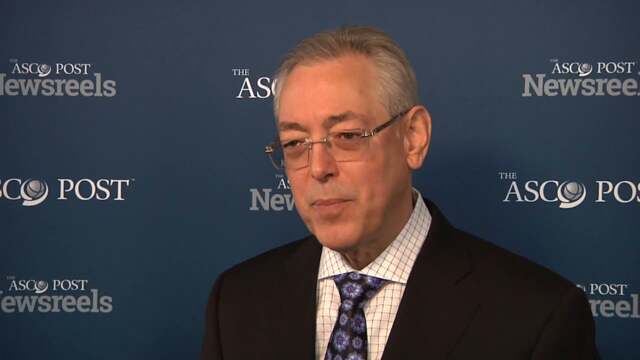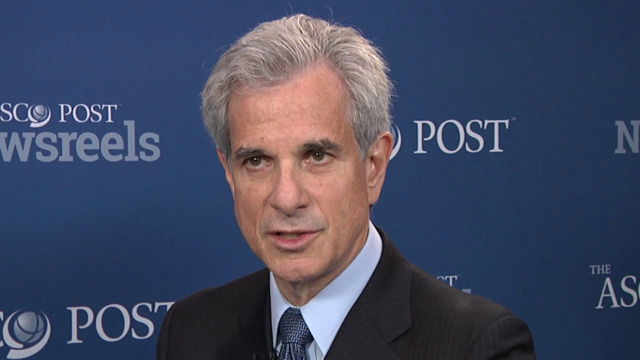Carolyn Jean Presley, MD, and James L. Mulshine, MD, on New Lung Cancer CT Screening Guidelines and Treatment Burden
2015 ASCO Annual Meeting
James L. Mulshine, MD, of Rush University Medical Center, and Carolyn Jean Presley, MD, of Yale Cancer Center/Yale School of Medicine, discuss the burden on patients and the Medicare system as new lung cancer CT guidelines are put into effect and treatment of early-stage NSCLC increases (Abstract 7533).
Jan C. Buckner, MD
Jan C. Buckner, MD, of the Mayo Clinic discusses adjuvant whole-brain radiotherapy and the need for initial treatment with radiosurgery and close monitoring to preserve cognitive function in patients with brain metastases (Abstract LBA4).
Howard I. Scher, MD
Howard I. Scher, MD, of Memorial Sloan Kettering Cancer Center, discusses the updated criteria that will guide clinical trial design and conduct for therapeutics being tested in castration-resistant prostate cancer (Abstract 5000).
Julie Vose, MD, MBA
Julie Vose, MD, MBA, of the University of Nebraska Medical Center, reflects on the 2015 Annual Meeting and her year ahead as ASCO President.
Andrew James Martin, PhD, and Anthony J. Olszanski, RPh, MD
Andrew James Martin, PhD, of NHMRC Clinical Trials Centre, University of Sydney, and Anthony J. Olszanski, RPh, MD, of Fox Chase Cancer Center, discuss a form of vitamin B3 that reduced the incidence of new nonmelanoma skin cancers in high-risk patients (Abstract 9000).
Gregory T. Armstrong, MD, MSCE, and Lisa Diller, MD
Lisa Diller, MD, of Dana-Farber Cancer Institute, and Gregory T. Armstrong, MD, MSCE, of St. Jude Children's Research Hospital, discuss the findings of a landmark survivorship study (Abstract LBA2).





